Sydney Pollack shot the footage for Amazing Grace – watching Aretha Franklin recording her famous gospel album of the same – in 1972. After technical difficulties, not to mention a lawsuit, at long last the film is finally available to audiences, and it’s been worth the wait. To celebrate the film’s release, we spoke to Alan Elliott, the man who took on the responsibility of bringing this feature to our screens, all about this troublesome journey, why Aretha sued him, and what it was like meeting her briefly, as well as being a guest at her funeral.
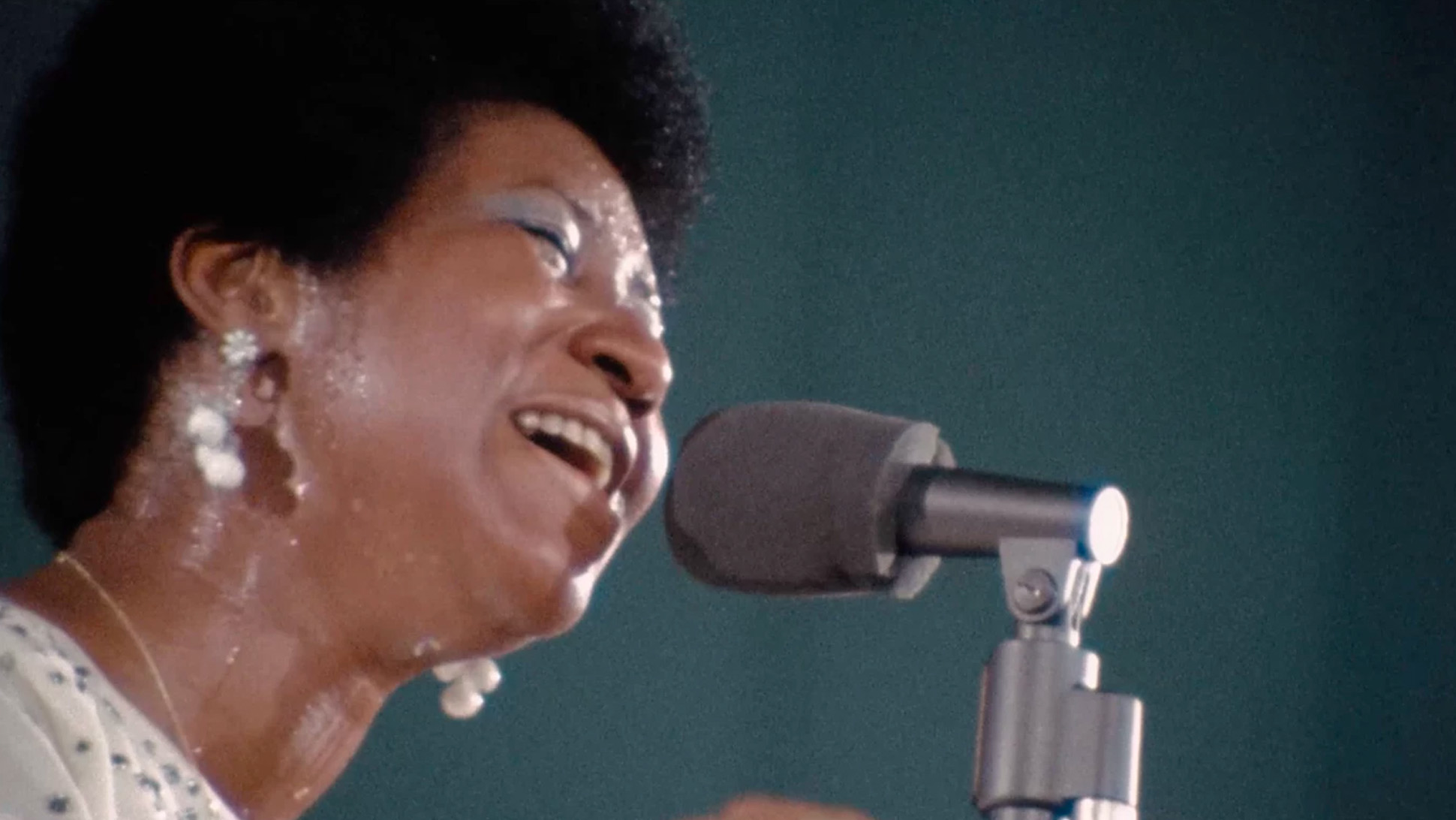
This film has had quite a unique journey to the big screen – what’s the story behind it? Why has it taken not far off 50 years for this footage to see the light of day?
They messed it up so badly when they made it. My father was a music arranger and the first movie he did in Hollywood was The Unsinkable Molly Brown and I thought, the unsyncable Aretha Franklin. Having no luck when making the movie in 1972, Sydney Pollack couldn’t sync the movie, and there was a 36 year hole that they could never dig out of until digital technology would allow it. Nobody at the film company wanted the movie out, and so everybody worked diligently to make sure it never came out. Fortunately I had more nerve than they did.
Somewhere along the line there was a court case – Aretha Franklin sued you?
Well I think Aretha Franklin was very upset in 1972 when they they promised her she was going to be a movie star, but they messed it up. Then came this mythos that was built up around it, which was that she was holding it up, but that wasn’t the case. The case was that they couldn’t sync the film, but when they built up this myth that she was problem, she then became the problem. By the time I got involved what was once a small little movie that was made by a small company, which was supposed to be a follow up to Woodstock and bring together a film company and a record company, but by the time I get there, the film company has sold the record company and the record company no longer has Aretha Franklin on its label, and it no longer wanted to deal with Aretha Franklin. The film company didn’t want to deal with the record company and didn’t want to put out little movies, they make Avengers style movies. So in that Aretha Franklin says that she’s the problem, she owned it. She had a lot of money and a lot of lawyers and she was probably still angry from 1972, so she decided to block the movie.
Can you remember the moment when the estate got back in touch and said they were now okay with it being released?
I had made the movie, and I sent her the movie and she loved the movie, so it was very strange because we were negotiating to get her the money that she asked for, and we’d gotten her the money a couple times but she didn’t want to be contacted and I couldn’t figure out why. At a certain point her niece, who is now the executor of the will, came to me and said she had pancreatic cancer, and that sort of changed the viewpoint on it, to ‘oh my God why does she not like the movie’ to, ‘oh my god we’ve made a eulogy for her’ and so of course she didn’t want the movie out. That became a decision that her family and I made which was not to put the movie out over the last three years because we didn’t want her to have to go through that. The first song that she ever recorded is the last song on the movie and I knew how powerful that would be, and we couldn’t ask for her to tour her own eulogy.

Have you ever met Aretha?
I met her once, for maybe eight to 10 seconds.
That’s more than me. How was that, as brief as it was?
As brief as it was, I was introduced to her by my old mentor who had produced all of her records, and it was backstage at a show, and I had just got the footage and I thought it would be an easy movie to make, and so I waited for her and I was introduced to her, and I bowed and curtsied, as you should for the Queen, and she said, ‘it’s nice to meet you’ and that was it, she walked away.
But you went to her funeral?
Yeah. The family had invited me to come to the funeral, so I went to Detroit, and the city shut down. It was like a state funeral. There were people lined up, five to 10 deep throughout the city for the casket ride. It was unbelievable. The whole city was so sad, and at the same time so joyous about her, and so welcoming. It really was a fascinating time, and obviously was coloured by the fact that I had 11 years of working on this movie, and it was her eulogy, and is her eulogy. It was a completely loaded occasion.
I was overcome with emotion the whole way through the film – is there a particular moment in there that always touched you the most?
There are many. There’s a close-up in the middle of Precious Memories where she is just singing, right before James Cleveland throws the towel at her, and it’s just a moment that makes me think, every time, ‘oh my God look at what she is doing’. I have two daughters, and when her father wipes her brow at the beginning of Never Grow Old… But there’s so many. Having made the movie there’s little things that I watch that I feel so blessed to have. Like the woman who is recording the footage on her little tape recorder, and she looks at the camera and we look back at her and she smiles, and we smile at her, and I feel like that’s when the movie becomes a movie where it’s a bigger experience, because it becomes more comfortable and we all know we’re going to be having a good time. The last shot with Sydney Pollack looking over her shoulder, because he was a good friend and obviously wouldn’t have been able to make the movie without his consent, and him looking over her shoulder and smiling in the last shot of the movie, that always gets me. There’s just a lot, it’s a very emotional piece.
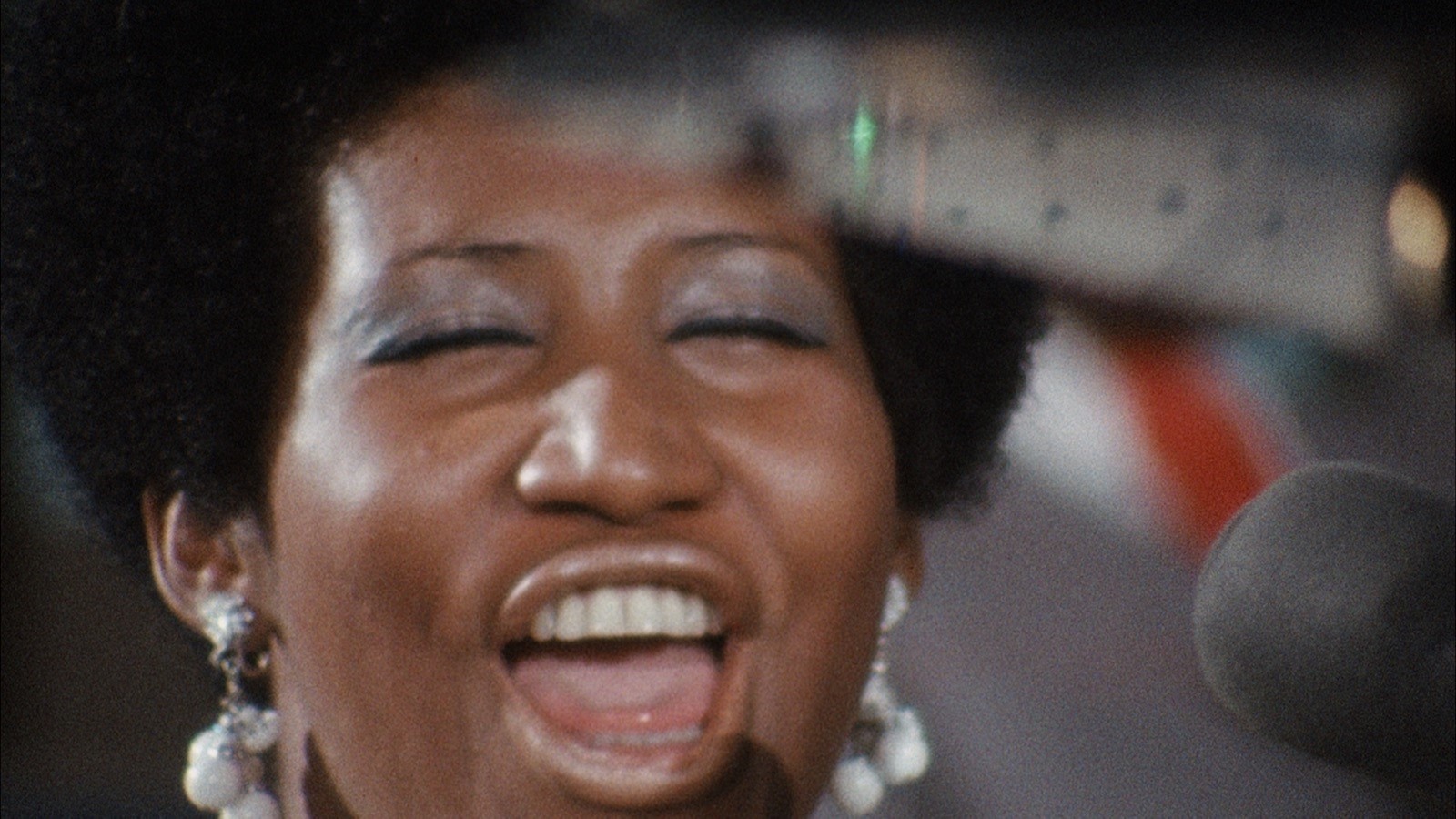
The camera just sits there and watches her doing her thing, which is the beauty of it. There’s no talking head interviews, or montages. This is just Aretha being Aretha.
I think there’s a confluence of things in this particular piece. There’s an old saying, an old jazz idiom, ‘when in down, lay out, and let the rhythm section play’. And all we have is the greatest rhythm section in the history mankind, and this great choir, and you have James Cleveland, so you have this great singular human being in Aretha Franklin surrounded by just the best of the best of the best, and don’t get in the way of it. You know, let us all bathe in this music, because the music is so powerful. I always knew the record from being very little to grown up, and at a certain point I like to refer to as the ‘master/apprentice moment’ before Sydney Pollack died and before we ever looked at a frame of footage, he said to me, ‘why don’t we go to Quincy Jone’s house to film a talking head?’ and I said no. Let’s not do that. He was taken aback by somebody telling him no, but I was very confident that the music was something we could just indulge in and never get tired of. Yes there’s a lot of structure and stuff behind the scenes in terms of how we made the movie, we dealt with structure from musical theatre and there’s lots of edits that you don’t see but are there. Amazing Grace is originally 16-18 minutes long, and we have it as 11 minutes, so we cut it down by 35%. But our ability to stay in longer takes and I would say to the editor all the time, ‘stay there, just stay there’. And the natural inclination is to cut to other coverage, but I just said stay there. Let us discover it, let us watch, let us look at the guy in the corner, or the guy in the other corner, or the woman sitting in the front row, or let’s watch the band, or let’s watch the choir, let us be in the hall. I think that’s where we had the greatest success in getting her, because she only says about four sentences in the whole movie. By being able to just stay in the moment I think we bring our own emotions to it, and project onto her things that we might be feeling that she might not be telling us to feel, but we have access to because we’re trusting in the comfort of her performance.
When you’ve been working on something for as long a time as you have on Amazing Grace, with a whole myriad of bumps along the road. Does it feel quite surreal that it’s now out there and people have access to it?
Yeah. My daughter was in utero when we came up with the idea to make the movie and now she’s just got her training bra. So she’s gone from being in my wife’s stomach to being a feminist all in the space of time we’ve made the movie. It is absolutely surreal. The choir director who has been a very good friend, and the assistant choir director who you can see at the very end, he flew to my house to watch it in my office because I couldn’t show it to him any other way, and that was surreal as well. Plus doing press in France, the UK, Ireland and Germany, talking about it. But there is a great responsibility to the movie, I am very proud of it. It did become ‘if not me, who?’ so I’ll accept the responsibility and have fun with it. The great thing about the movie is, if I’d had to make a film about the Holocaust, or Aleppo, or opium addiction, I don’t think I could do 13 years of watching it. But because the music in this is so enriching and soul nourishing, every time I get to go and watch the movie I have a great time. I love it. I love it. I go to a screening and I’m not like the usual director who will introduce the movie and then go and have a coffee and come back for a Q&A. I sit down with everybody, I’m interested in the experience of watching it with other people.
But having been so close to it, for so long, is it hard to give it up? Is it hard to readapt? Or is there a sense of relief when the whole process is over?
I look forward to finding something else. There have been so many times where if I didn’t put the bit between my teeth and just chomp forward, it would never have happened. And I knew how great it was. It is a strange thing, all of my heroes have had to go through this before me and this is just the way it goes. There’s nothing else to do, except to do it.
Have you any idea what may be next for you?
Well we’re hopeful there’s a six-part television novel of a book called The Bear Comes Home, which was a prestigious book and is about a jazz alto-saxophone playing bear who decides that his calling is life is no longer to entertain but to really concentrate on his craft. So a writer and I have been putting together that, and hopefully it will be the next thing, but one never knows.
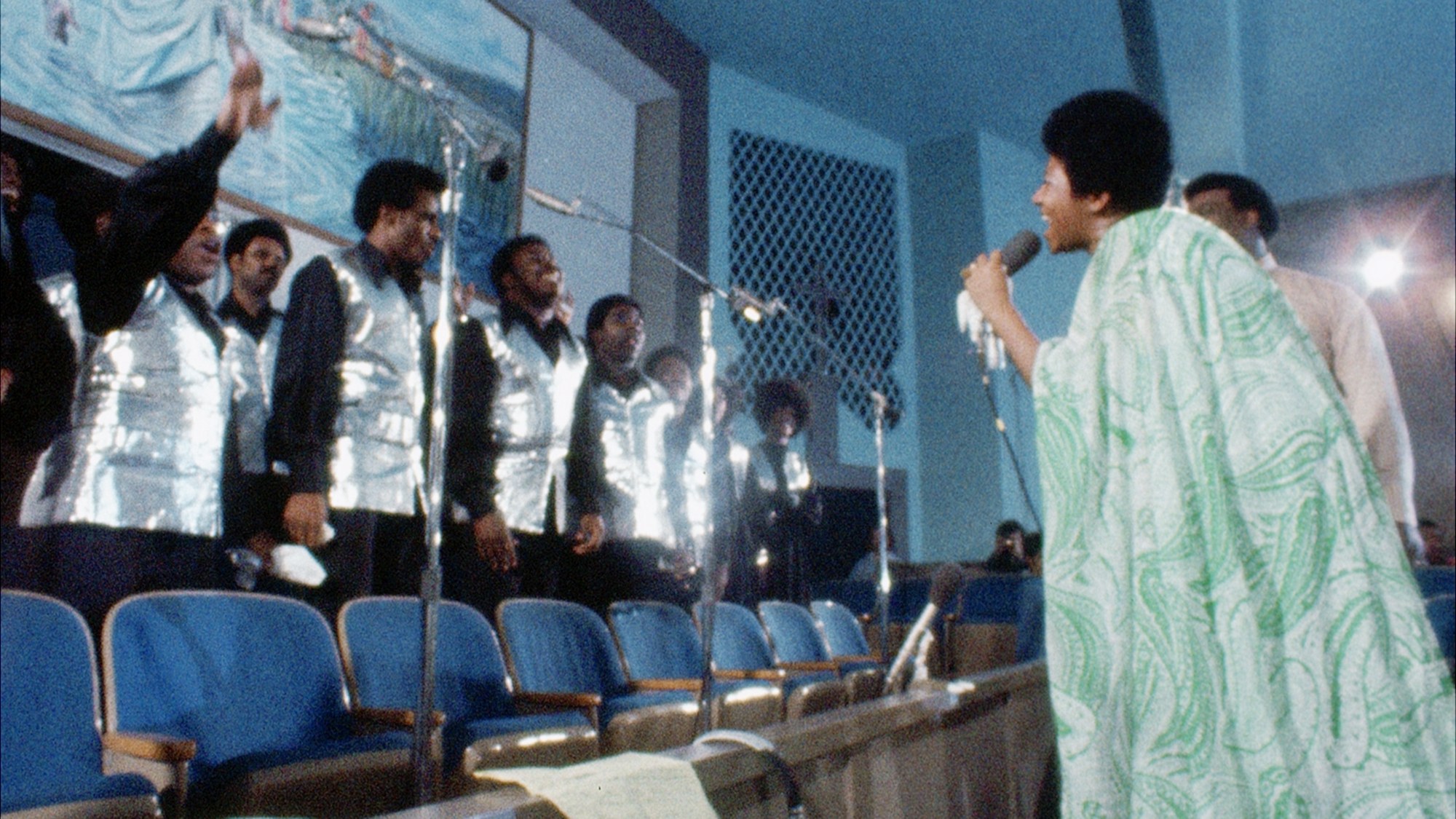


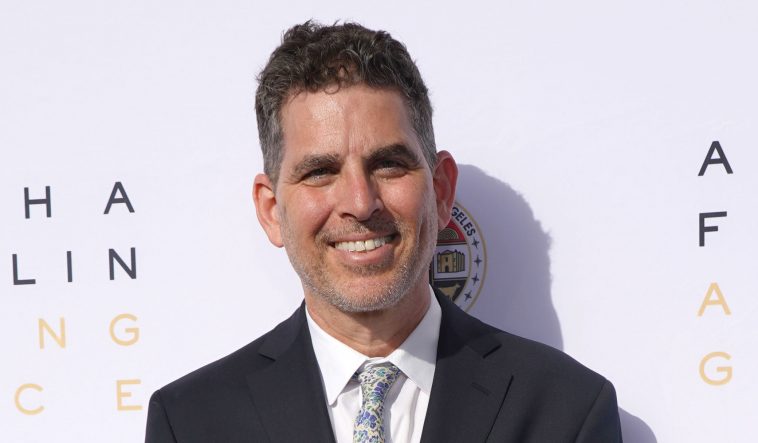
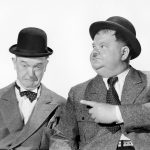




Leave a Comment